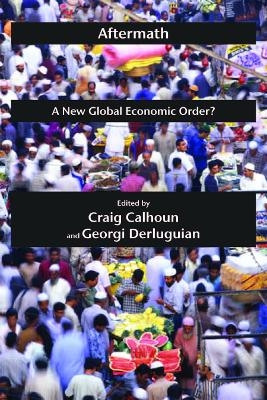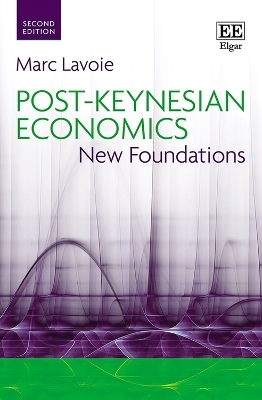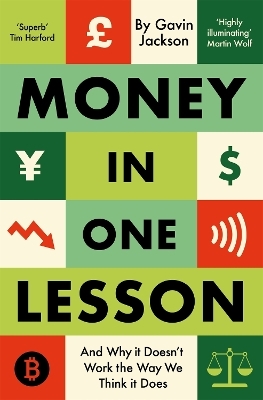
Aftermath
New York University Press (Verlag)
978-0-8147-7283-6 (ISBN)
- Lieferbar (Termin unbekannt)
- Versandkostenfrei innerhalb Deutschlands
- Auch auf Rechnung
- Verfügbarkeit in der Filiale vor Ort prüfen
- Artikel merken
The global financial crisis showed deep problems with mainstream economic predictions, as well as the vulnerability of the world's richest countries and the enormous potential of some poorer ones. China, India, Brazil, and other counties are growing faster than Europe or America and have weathered the crisis better. Is their growth due to following conventional economic guidelines or to strong state leadership and sometimes protectionism? These issues are basic to the question of which countries will grow in comind decades, as well as the likely conflicts over global trade policy, currency standards, and economic cooperation.
Contributors include: Ha-Joon Chang, Piotr Dutkiewicz, Alexis Habiyaremye, James K. Galbraith, Grzegorz Gorzelak, Jomo Kwame Sundaram, Manuel Montes, Vladimir Popov, Felice Noelle Rodriguez, Dani Rodrik, Saskia Sassen, Luc Soete, and R. Bin Wong.
Aftermath is the third part of a trilogy comprised of the first three books in the Possible Future series.
Volume 1: Business as Usual
Volume 2: The Deepening Crisis
Volume 3: Aftermath
The three volumes are linked by a common introduction and can be purchased individually or as a set.
Craig Calhoun is Director of the London School of Economics and Global Distinguished Professor of Sociology at New York University. His most recent book is The Roots of Radicalism: Tradition, the Public Sphere, and Early Nineteenth-Century Social Movements. Georgi Derluguian is Associate Professor of International Studies and Sociology at Northwestern University and is the author of Bourdieu's Secret Admirer in the Caucasus: A World-System Biography.
Introduction Craig Calhoun and Georgi Derluguian1 A Savage Sorting of Winners and Losers, and Beyond Saskia Sassen2 The 2008 World Financial Crisis and the Future of World Development Ha-Joon Chang3 Growth after the Crisis Dani Rodrik4 Structural Causes and Consequences of the 2008-2009 Financial Crisis Jomo Kwame Sundaram and Felice Noelle Rodriguez5 Bridging the Gap: A New World Economic Order for Development? Manuel Montes and Vladimir Popov6 Chinese Political Economy and the International Economy: Linking Global, Regional, and Domestic Possibilities R. Bin Wong7 The Global Financial Crisis and Africa's "Immiserizing Wealth" Alexis Habiyaremye and Luc Soete8 Central and Eastern Europe: Shapes of Transformation, Crisis, and the Possible Futures Piotr Dutkiewicz and Grzegorz Gorzelak9 The Post-Soviet Recoil to Periphery Georgi Derluguian10 The Great Crisis and the Financial Sector: What We Might Have Learned James K. Galbraith Notes About the Contributors Index
| Verlagsort | New York |
|---|---|
| Sprache | englisch |
| Maße | 153 x 229 mm |
| Themenwelt | Sozialwissenschaften ► Soziologie |
| Wirtschaft ► Volkswirtschaftslehre ► Finanzwissenschaft | |
| Wirtschaft ► Volkswirtschaftslehre ► Makroökonomie | |
| ISBN-10 | 0-8147-7283-8 / 0814772838 |
| ISBN-13 | 978-0-8147-7283-6 / 9780814772836 |
| Zustand | Neuware |
| Haben Sie eine Frage zum Produkt? |
aus dem Bereich


